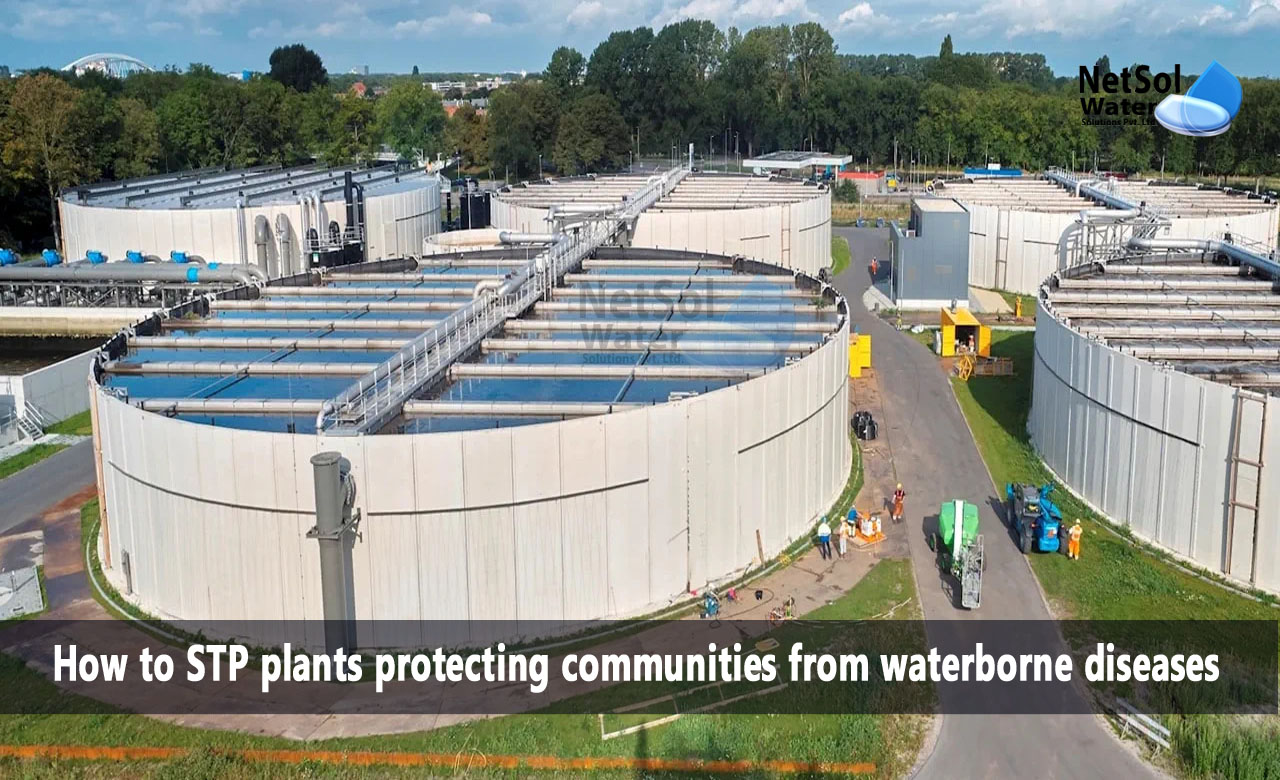How to STP plants protecting communities from waterborne diseases?
Access to clean and safe water is essential for maintaining public health. However, improper disposal of sewage and wastewater can pose significant risks to communities, leading to the spread of waterborne diseases. To mitigate these risks and safeguard public health, sewage treatment plants play a critical role.
In this blog post, we will explore the importance of sewage treatment plants in protecting communities from waterborne diseases and ensuring a healthier living environment.
Understanding Waterborne Diseases
Waterborne diseases are illnesses caused by pathogenic microorganisms that contaminate water sources. These diseases can spread through the consumption of contaminated water or the ingestion of food prepared with contaminated water. Some common waterborne diseases include cholera, typhoid fever, hepatitis A, dysentery, and giardiasis.
The Role of Sewage Treatment Plants
Sewage treatment plants are facilities designed to treat and purify wastewater and sewage before it is released back into the environment. These plants employ a combination of physical, chemical, and biological processes to remove contaminants and harmful microorganisms from the wastewater. By effectively treating sewage, these plants help prevent the spread of waterborne diseases and protect public health in the following ways:
- Removal of Pathogens: Sewage treatment plants use various processes, such as primary sedimentation, biological treatment, and disinfection, to remove pathogens from the wastewater. Pathogens like bacteria, viruses, and parasites are effectively reduced, minimizing the risk of waterborne disease transmission.
- Nutrient Removal: Sewage contains high levels of nutrients, such as nitrogen and phosphorus, which can lead to harmful algal blooms and ecosystem imbalances in receiving bodies of water. Sewage treatment plants employ methods like biological nutrient removal to reduce nutrient levels, preventing water pollution and maintaining ecological balance.
- Safe Disposal of Sludge: Sewage treatment plants also handle the solid waste, known as sludge, generated during the treatment process. Through sludge treatment and proper disposal methods, including composting, anaerobic digestion, or landfilling, sewage treatment plants ensure that potentially harmful substances are managed responsibly.
- Environmental Protection: By treating sewage before discharge, sewage treatment plants help protect aquatic ecosystems and prevent the contamination of surface water and groundwater sources. This, in turn, maintains the overall environmental health and biodiversity of surrounding areas.
Promoting Public Health and Community Well-being
The presence of sewage treatment plants in communities has a direct impact on public health and community well-being:
- Disease Prevention: Properly treated wastewater reduces the risk of waterborne diseases, protecting individuals and communities from illness and potential outbreaks.
- Safe Recreational Water: Sewage treatment plants contribute to the safety of recreational water bodies like beaches and lakes, ensuring that the water is free from harmful contaminants and pathogens. This allows people to enjoy recreational activities without compromising their health.
- Safe Drinking Water: By preventing the contamination of water sources, sewage treatment plants contribute to the production of safe drinking water. This ensures that communities have access to clean, potable water for daily consumption, reducing the risk of waterborne illnesses.
- Enhanced Quality of Life: The presence of reliable sewage treatment plants promotes a cleaner and healthier living environment. Communities benefit from improved sanitation, reduced odors, and minimized pollution, leading to an overall enhancement in the quality of life for residents.
Conclusion
Sewage treatment plants play a vital role in protecting communities from waterborne diseases and ensuring public health. By effectively treating wastewater and sewage, these plants remove pathogens and contaminants, preventing the spread of illnesses through water sources. The presence of sewage treatment plants promotes cleaner environments, safer recreational water, and access to clean drinking water, ultimately contributing to the overall well-being and quality of life in communities.
It is crucial to recognize the significance of ongoing maintenance and investment in sewage treatment infrastructure to ensure the continued protection of public health. By prioritizing the development and improvement of sewage treatment plants, we can create healthier and more resilient communities, safeguarding against the risks posed by waterborne diseases.
Remember, the next time you enjoy a glass of clean water or engage in recreational activities by the water, you can appreciate the role that sewage treatment plants play in protecting you and your community from waterborne diseases.
Netsol Water is Greater Noida-based leading water & wastewater treatment plant manufacturer. We are industry's most demanding company based on client review and work quality. We are known as best commercial RO plant manufacturers, industrial RO plant manufacturer, sewage treatment plant manufacturer, Water Softener Plant Manufacturers and effluent treatment plant manufacturers. Apart from this 24x7 customer support is our USP. Call on +91-9650608473, or write us at enquiry@netsolwater.com for any support, inquiry or product-purchase related query.



